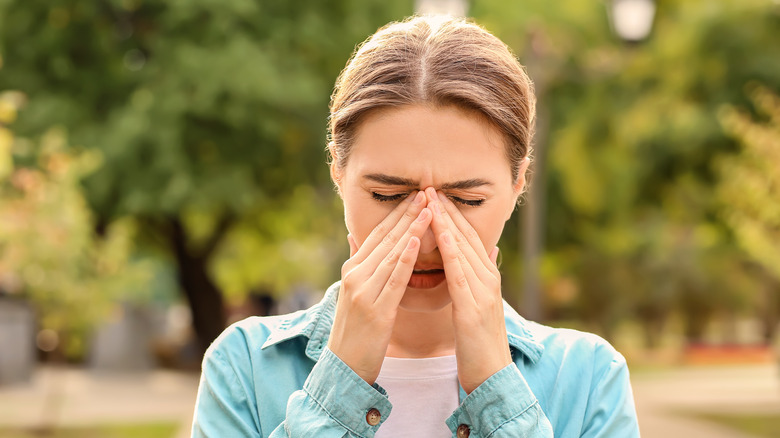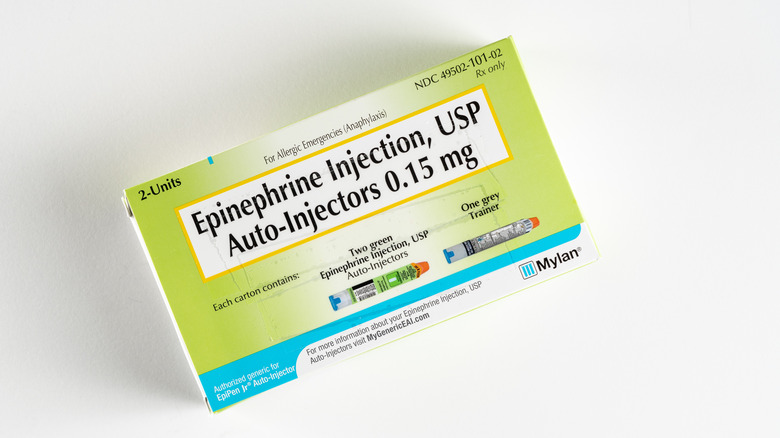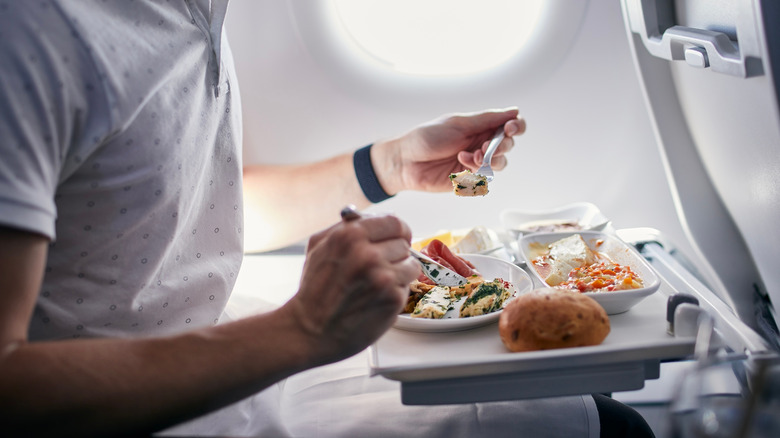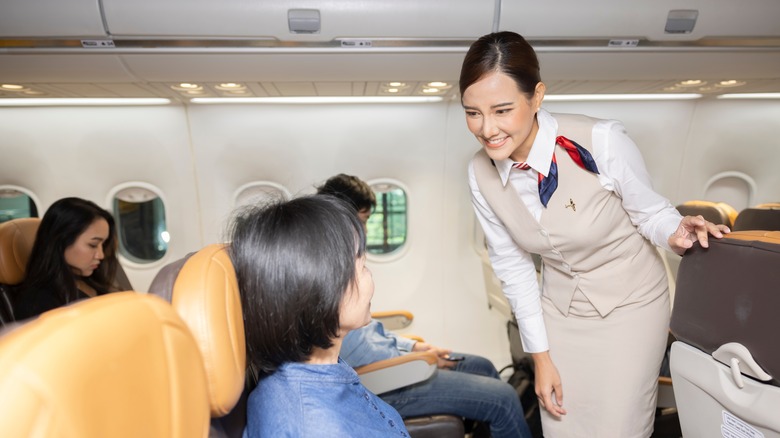Severe Allergies? Here's How To Advocate For Yourself And Plan For Your Next Flight
For anyone who has experienced the symptoms of allergies, you know how miserable it can be. Coughing, sneezing, sniffling, headaches, watering eyes, and itchy skin can be extremely uncomfortable even in the best of circumstances. On an airplane though, the discomfort, severity, and even danger of allergies can be magnified. Though the air on airplanes is constantly filtered throughout the flight, this won't stop sensitive individuals from being affected by environmental allergies like pet dander on people's clothes, pollen, and perfumes. However, those with food and pet allergies must take even further precautions and take extra steps to prepare for longer-haul flights since these reactions can be extremely uncomfortable and potentially even fatal if not taken care of immediately.
Though allergic reactions only account for between 2-4% of in-flight emergencies, there is still a very real danger of people with allergies having an unexpected reaction, and if an EpiPen is used, the flight must be diverted so the individual can get medical attention immediately. This would not be a great start to your vacation or business trip ... to say the least. So here is what you can do to plan for your next flight if you have severe allergies.
Keep a stash of up-to-date medications on hand
People with severe allergies know you never leave the house without your inhaler, EpiPens, and some extra-strength antihistamines like Benadryl. This also includes when you fly since even though some airlines carry epinephrine in their onboard medical kits, they may not be the easy-to-inject auto-injectors. Because epinephrine is so important to keeping you alive and well, you are safer carrying your own auto-injectors and making sure to replace your EpiPens every 18 months. The price of these life-saving devices is unfortunately quite expensive, especially without insurance, but there are many programs now that can help get you great discounts.
Moreover, make sure to double-check the expiration date on all your medications (not just your EpiPens) and keep them in a sealed container or airtight bag to protect their shelf life at home and while traveling. Other good lines of defense for those less severe environmental allergies are nose sprays, allergy eye drops, and daily dose antihistamines. You might also want to consider wearing a mask, which a study from the Journal of Allergy and Clinical Immunology indicates can reduce the effects of allergies and prevent asthma symptoms.
Bring your own food on board
One of the scariest things for people with allergies can be food made with mysterious ingredients. Especially if you have an allergy to something like wheat, soy, eggs, or tree nuts. These allergens can appear in any in-flight meal and there can be no peace of mind since many airline catering companies don't include ingredient lists for their meals and flight attendants can't accurately tell you what's in the food any better than you can.
Some airlines can accommodate some of the top-9 food allergies (milk, eggs, nuts, fish, crustaceans, shellfish, wheat, soy, and sesame) but this is not the norm and more uncommon allergens are still not catered to so you should always be sure to call 48 to 72 hours in advance. So the best solution is, unfortunately, to just bring your own meals with you, even for overseas flights. Yes, this can be a bit of an inconvenience. However, if you truly have severe allergies that can even be triggered by cross-contamination, you must bring your own food with you.
If you're very concerned about coming into contact with your allergen on your flight or have severe allergic reactions, you should be sure to let a flight attendant know about your allergy. You may even want to take the extra step to show them where you keep your EpiPen in case of emergency.
Advocate for yourself
While the FAA does not have specific policies in place, they do advise airlines to have procedures outlined for flight attendants to move passengers upon request or offer an alternative flight if a passenger's request cannot be accommodated. However, this means your experience — airline to airline — may vary.
Though the Department of Transportation cannot require airlines to create peanut-free buffer zones or keep peanuts off planes entirely, they did rule in 2019 that airlines must allow passengers with peanut allergies extra time to board to wipe down their seats which can prevent unintended contact with their allergen. This ruling was specific to peanut allergies though, so if you have any other severe food or pet allergy, be sure to call ahead of your flight or when you book and ask specifically what accommodations can be made for you.



